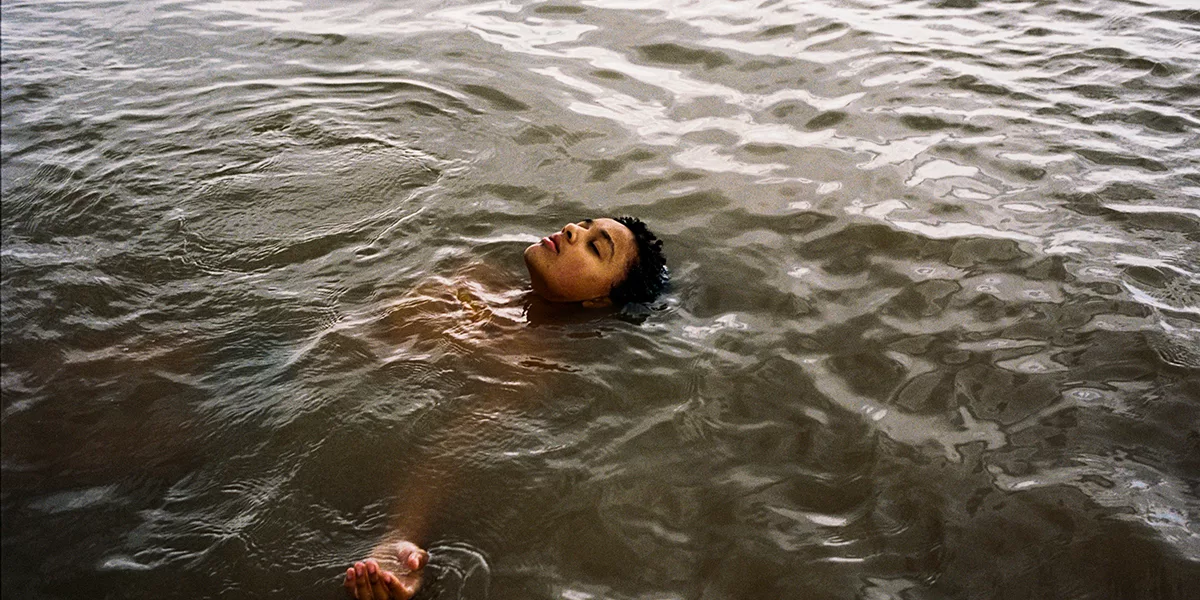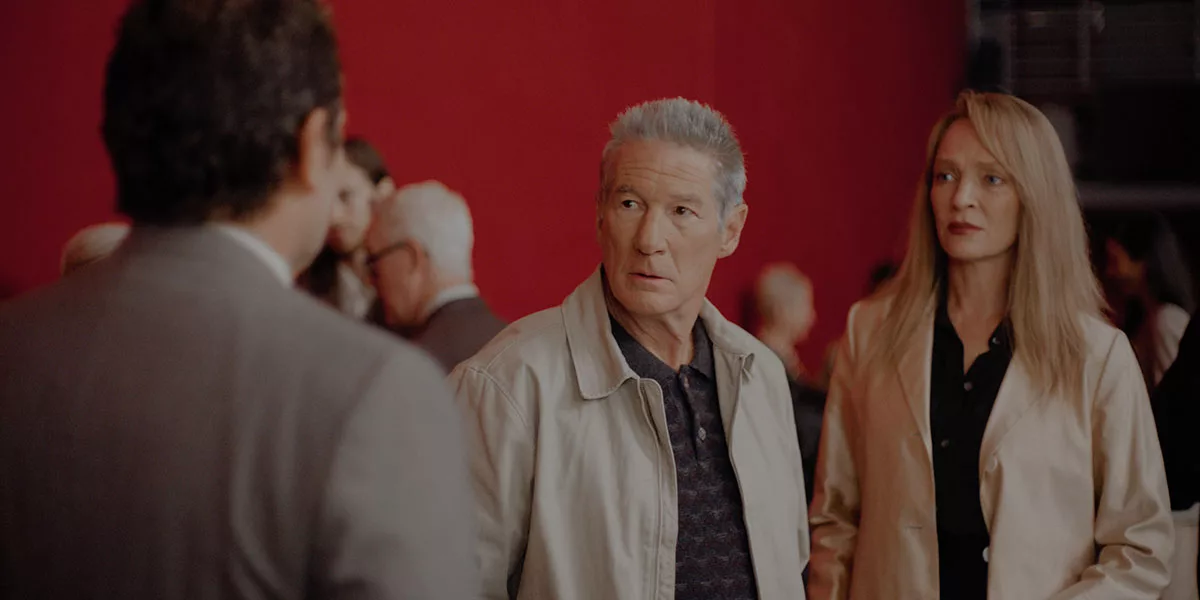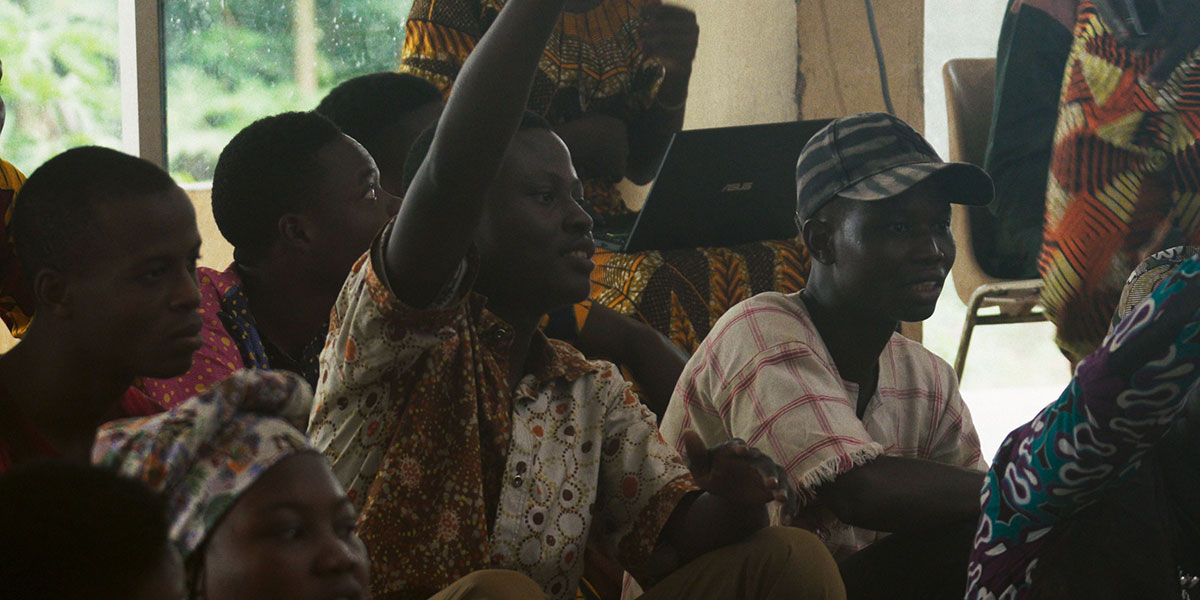One of the benefits of coming to TIFF every year is that the first day of press screenings is almost entirely made up of films that premiered at other fests earlier in the year. For example, last year my first two films in Canada were “Anatomy of a Fall” and “The Zone of Interest.” It sets a high bar for not just the rest of the fest, but it’s usually one of my best moviegoing days of the year. This year, I was able to catch up with two divisive films from Cannes and an award winner from Berlin that was the best of the three.
That film is Mati Diop’s excellent “Dahomey,” the Golden Bear winner from this year’s Berlinale. Diop’s first film since the phenomenal “Atlantics” is a deceptively simple piece of non-fiction filmmaking, running only 68 minutes but packing so much insight and implication into that small package. In 1892, the French took hundreds of artifacts, art, statues, and other treasures from the Kingdom of Dahomey (now known as Benin). In 2021, France agreed to give back 26 of them, starting a process of reclamation that would prove controversial and fascinating.
Diop basically tells three aspects of this story, first giving voice to one of the statues, heard over the film as we watch experts care for the treasure or even just in black as it lies in a box. The statue speaks of going home in the country’s original language of Fon, but not in a clichéd way as much as one that recognizes the changing force of time. West Africa is not what it was 130 years ago, even as the locals celebrate the arrival of their lost artifacts. After arrival, Diop spends some time with the people in charge of ensuring their safety and condition, chronicling what they’re made of and what shape they’re in like a doctor would a patient. Finally, and most interestingly, she spends time at a meeting between university students and professors about the artifacts, wherein people argue over their cultural value, why it has taken so long, and why it’s such a relatively small portion of the stolen items that are being returned.
This section could have gone on four a Wiseman degree of time for this viewer as the conversation goes in so many unexpected, interesting directions that my head was spinning. By saying that these items return Dahomey culture to its homeland implies that taking them left a void in the first place. Isn’t culture embedded in dress, rituals, and even storytelling? And why should they be grateful for what is a small fraction of a correction for a theft?
There are political machinations hinted at too, but also some who are clearly moved by being able to revisit and reclaim an important chapter of their history. Diop’s film is so daring because, on the surface, it’s about the physical markers of culture and history, but it’s made in such a way that we come to understand that the items we see in museums are more than just records of something that happened long ago. They still have power not only to remind us of where we’ve been but get us talking about who we are today and where we’re going next.

Andrea Arnold continues to do no wrong for this critic, embedding themes from previous works like “Fish Tank” and “American Honey” into her excellent new “Bird,” a movie that was divisive at Cannes this year, but for which I fall firmly on the positive side. Yes, there’s a familiarity to it—I think I would know it was Arnold film without even seeing the credits—but it’s so captivatingly made that it’s forgivable. Arnold finds creative passion in the people of the world who are often left behind. In this case, she weaves a strand of magical realism into a story of treacherous poverty, delivering a character study that comes to life in the most unexpected ways.
“Bird” is the story of Bailey (effective newcomer Nykiya Adams), who lives in a tenement with her single father Bug (Barry Keoghan, first seeming to be in full freakout mode but finding subtle beats in the second half of the film). One senses early on that Bug had kids—Bailey has a half-brother—when he was just a kid himself, leaving him too immature to be a real father, forcing Bailey to grow up more quickly than she should have to. An even darker fate for her half-sisters is unfolding across town with her mother’s brutally abusive boyfriend. Is it any wonder that Bailey dreams about flying away?
Enter Bird (Franz Rogowski), a smiling but fragile man who claims to have lived in a nearby tenement and hopes Bailey can help find his family. From his first appearance, there’s obviously something a bit unusual about Bird, making the arguments from Cannes that Arnold’s film pivots hard into magical realism in the final scenes a bit ridiculous—it’s there the whole time if you’re paying attention. Arnold’s filmmaking is typically robust, buoyed by another great soundtrack, of course, but the real gem here is another riveting performance from Rogowski. I’m not sure there’s anyone right now who knows how to use his physicality—his face and body—quite like Rogowski. He’s just captivating, and he becomes more than just a quirky supporting player in “Bird,” pushing Bailey and the narrative forward to its fantastical conclusion.
What “really happens” in the final scenes of “Bird” means so little to me in that Arnold is working in an emotional register more than a practical one. There’s a reason she keeps returning to Blur’s “The Universal” and the line “It really, really, really could happen.” Anything can in the movies.

My final day one catch-up film of TIFF 2024 was the latest from Paul Schrader, “Oh, Canada,” adapted from the book by Russell Banks and reuniting the writer/director with the star of one of his most beloved films. Over four decades after “American Gigolo,” Richard Gere delivers again for Schrader, giving one of his best performances ever as a documentary director named Leonard Fife, who fled the United States during the Vietnam War to settle down in Canada. Near the end of his life, he’s giving an interview to a documentary crew led by a former student named Malcolm (Michael Imperioli), and Leonard has a few things he wants to get off his chest. And he needs his wife Emma (Uma Thurman) there to hear them.
Fife’s memories play out in flashbacks as Schrader gets (arguably too) loose with aspect ratios and color palettes. Jacob Elordi of “Saltburn” and “Euphoria” fame is perfectly cast as a young Leonard, but Gere even pops up in flashbacks as his younger self as Schrader tries to capture how memory gets more fluid and jumbled as we age. “Oh, Canada” jumps around in time in a way that’s designed to almost replicate how we struggle to hold onto specifics as we age—memories playing out more as emotional markers of a life than as actual events. It’s the kind of structure that feels like it might have worked best on the page, sometimes losing the dramatic thread in film form in a way that I think might be intentionally frustrating but pushed me out of the emotional experience of the film, nonetheless.
Still, there’s much to like here, particularly in Gere’s vulnerable performance and just how openly Schrader is expressing what feels like his own concerns about aging, regret, and reputation. Schrader’s recent run of dramas, even when adapting other material, feels deeply personal, the kind of late-career filmography that I suspect will be studied and analyzed for a long time to come. He’s certainly earned it.

